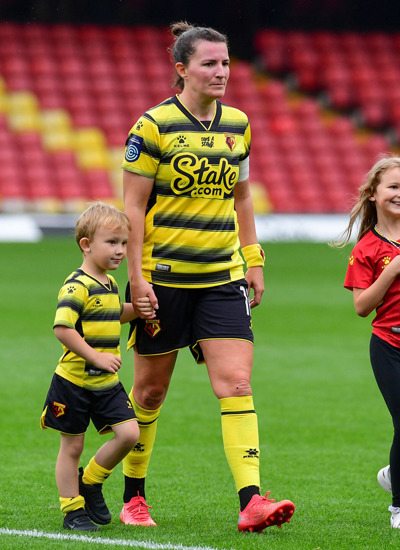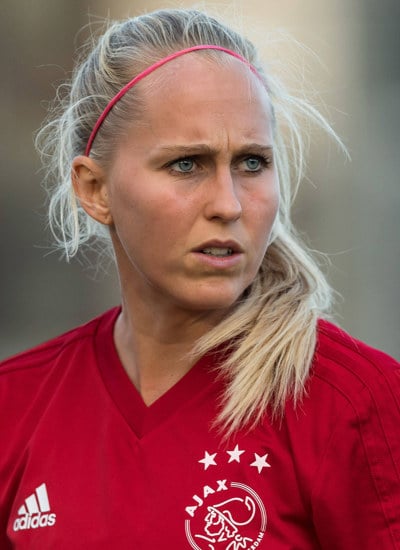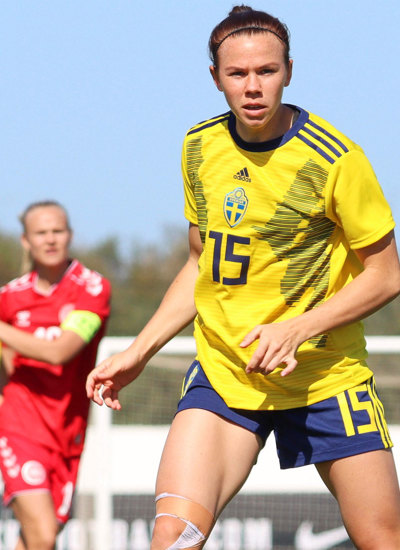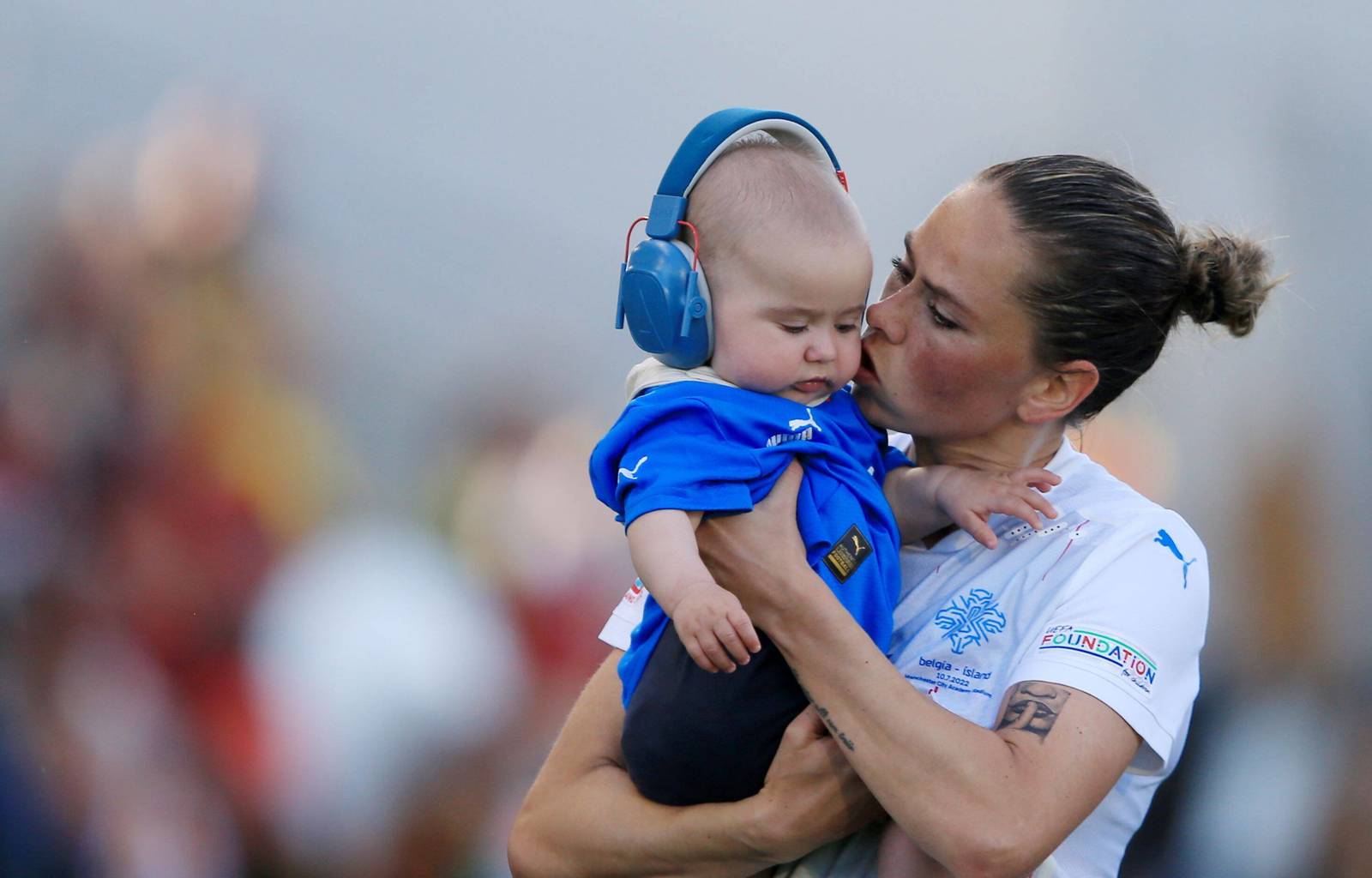

About
Alexandra Gomez Bruinewoud
Senior Legal Counsel Alexandra Gomez Bruinewoud was an integral force in defining what is now known as the FIFA maternity regulations
FIFA’s maternity regulations were introduced after pressure from FIFPRO and aim to stop women from having to choose between being a player or a mother; creating an environment where they can do both without having to sacrifice aspects of the other.
We know from studies that women's players tend to reach their peak slightly after their male counterparts, meaning their most prominent playing years often occur at the age of 26 or 27. Unfortunately, by then, many women have already had to make the decision to retire early to either start a family, or pursue a career that offered better financial prospects.
The result is that women’s football has never benefitted from the full potential of these players. Had they stayed they would not only have developed their own abilities, but also built the competitive level of the game around them. This is why maternity regulations are not just a necessity for the individual, but the sport as a whole.
We are now a whole year past the deadline of July 2021, which should have seen all 211 FIFA member associations officially committed to upholding the maternity standards included in the RSTP (FIFA Regulations on the Status and Transfer of Players). Unfortunately, this is not yet the case. That is not to say it hasn’t empowered women’s football, as it has inspired the signing of new collective bargaining agreements in women’s leagues, clubs and national teams. But it is simply not enough.
PATHWAY TO MATERNITY REGULATIONS FOR PROFESSIONAL FOOTBALLERS

Our key point is that footballers should be recognised as workers. This status entitles them to certain labour rights, which of course includes maternity and pregnancy protections.
Certainly, there is more of a difficulty to incorporate it in countries where women's players are not recognised as workers, or even where other workers do not have access to maternity rights – which is part of the reason that it is so critical for the FIFA RSTP to be completely implemented, so that we can all be held accountable to the same regulations no matter what.
The RSTP outlines the definition of what it is to be a professional player, so if you have a written contract which stipulates that you earn more money than just the expenses you incur when going to training, then you are a professional and you can be protected under the RSTP.
Even when countries protect players as workers under their national law and provide maternity protections accordingly, they do not always consider the very specific circumstances that come with being an expectant mother and a footballer.
Of course, there are countries who already have quite advanced maternity regulations for their players, some of which are even better than those stipulated in the RSTP. These nations can absolutely continue providing superior maternity requirements where they want to, but they also need to ensure that all aspects of pregnancy protection are upheld to the minimum standard enforced by the FIFA maternity regulations.
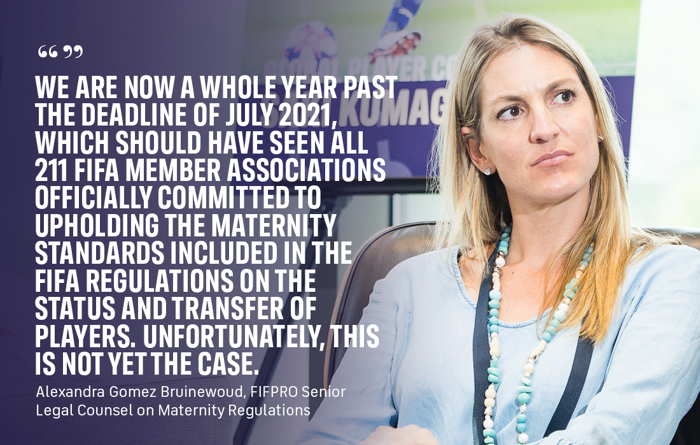
When we negotiated these regulations back in 2020 with FIFA and other stakeholders, we outlined the very basics that players should be entitled to. From the moment they were approved, it was already clear that this was not enough. But they did provide the groundwork for improving this area of women’s football.
We can now converse with players and see how they feel about the regulations, see how the execution works in practice and, perhaps most importantly, analyse aspects that need to be readdressed.
For example, the average contract length for women’s players is only one year. Depending on how we interpret the regulations, this could mean that realistically a player, with her nine months gestation and 14 weeks maternity leave, would have to become pregnant more or less as soon as she signed the contract to benefit from the maternity leave benefits.
Another interpretation could be that as the regulations provide for a clear protection, the contract should be understood to be extended, so that the player is granted the rights mentioned therein. Otherwise, the club can just let them go as soon as the contract is up, disregarding the whole protections that was intended when the regulations were approved. What is clear is that this automatic extension needs to be expressly contemplated in the regulations to provide certainty.
We suggested that players would have a protection of at least 180 days from the moment they return to the team, but that wasn’t an agreement we could reach at that point in time. Now, 18 months later, I think this should be one of the most urgent points to be tackled as we continue to work to make football and motherhood complementary pursuits.
Line Roddik Hansen: "We compare pregnancy to an ACL injury"
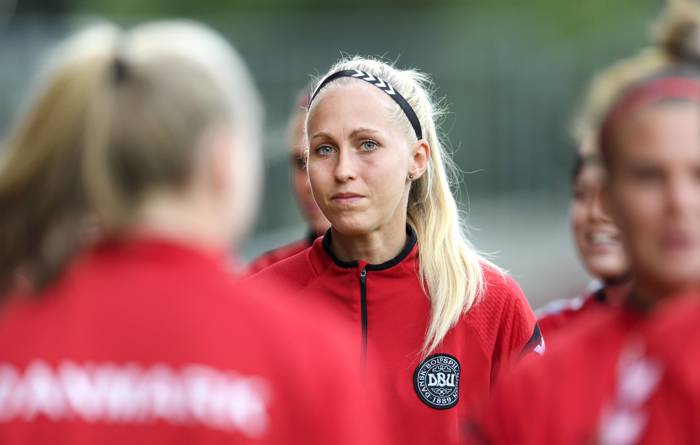
We have also not yet laid down regulations for the non-bearing child parent. Our proposal was to provide a minimum of 15 days of leave to the non-bearing child parent, but that was also something we could not push through, though it was agreed to further discuss this point in the near future.
Moreover, adoption still needs to be added, as well as protections for the specific needs of artificial insemination. The right to have a family does not stop at the ability to give birth, and should incorporate being a parent while being a footballer, so there is a whole lot more that can be done around supporting mothers with babies in clubs.
Every player, mother, and woman, is different. Each of them will have a different experience of pregnancy and maternity, but they should all have access to basic rights and protections. That is not to say that clubs and employers should not reach out to see how they can make life easier on an individual basis. In an ideal world, that human element would be expected and would lead to a healthier and more profitable work environment for everyone.
However, it’s not an ideal world, and we can’t ensure that kind of personalised support. But what we can do is make sure that all of our players have an even playing field. To do that, we need FIFA to be tougher on implementing these standards across the board, so that there can be no dispute in any country, that our players have the right to be mothers.
